Brave Warrior Read online
Page 2
“Why are you staring at me?” Felix finally said.
He didn’t look at her when he spoke. Instead, he worked on choosing a banana without any brown spots or any hints of green. Felix only liked perfect bananas, which were very hard to come by.
“I am staring at you because you look weird,” Maisie said.
At this, Felix paused, a banana in each hand, and stared back at his sister.
His eyes began at the top of Maisie, which was her unruly, tangly, not-quite-blond hair, and slowly moved downward: a faded black T-shirt from the play A Chorus Line with cracked gold foil letters and silhouettes of dancers holding top hats; jeans, also faded; lime-green Jack Purcells with yellow shoelaces on one sneaker and white shoelaces with tiny rainbows on the other.
“I look weird?” he said.
Maisie followed his gaze down to her shoes.
“The rainbows,” she said, “are meant to be ironic.”
Felix shrugged and went back to inspecting the bananas.
Just yesterday during lunch, Avery Mason, who was famous for her hair, had leaned over and whispered, “Felix, how could you be twins with someone so strange?”
And Felix’s heart had done a strange, confused tumble. He knew he should stick up for his sister. He should tell Avery Mason that Maisie wasn’t strange, just eccentric. He should defend her unique character, explain that once you got to know her, you would be impressed by how smart she was and excited by her adventurous spirit.
But instead, he had said, “Maybe they mixed up the babies at the hospital.” After he said it, his mouth tasted like chalk.
Now Felix sighed and rejected both bananas.
“I mean,” Maisie was saying, “you have a shirt with a pony on it.”
Felix chose to ignore her. He began to examine the oranges in the bowl on the counter. A perfect orange was more soft than hard, but not too soft.
“And it’s purple,” she said.
“Uh-huh,” Felix said, because why argue about clothes of all things? Especially when he understood that Maisie wasn’t really mad about his shirt. She was jealous that he had friends. Lots of them. And that he won the student council election. And that he liked living in Newport. A lot. Maisie had chosen to keep one foot in the past, but Felix had decided to live very much in the present.
“You look,” she said slowly, “ridiculous.”
“Duly noted,” Felix said. He squeezed an orange. This might be the right one.
Their mother appeared in one of her rumpled business suits. She looked, Maisie thought, determined.
“Good morning,” she said brightly. “How about a ride to school?”
“What are you up to?” Maisie said.
“Can’t I give you a ride to school without being up to something?” she said, rolling her eyes. “So cynical, my daughter is.”
“As usual, everyone is picking on me,” Maisie said loudly. “Relentlessly.”
In language arts yesterday, Mrs. Witherspoon had told them that adverbs were a sign of weak writing, so Maisie had decided to use as many adverbs as possible.
Her mother narrowed her eyes. “Where in the world did you dig out that old thing?” she said, pointing to the T-shirt Maisie wore.
“In the giveaway box,” Maisie said. “I can’t believe all the great stuff you were thoughtlessly planning on sending off to Goodwill.”
Her mother waved her hand as if she were sweeping things away. “Be my guest,” she said.
She glanced at her watch and announced if they wanted a ride, they had to leave.
“I accept,” Maisie said. “Gratefully.”
Felix groaned. Why couldn’t Maisie be even a little bit normal?
“So,” their mother said as she drove down Bellevue Avenue, “I’m having dinner with Bruce Fishbaum tonight. And I will be very late.”
Her eyes darted nervously to the rearview mirror, then back to the road.
She cleared her throat.
“This dinner,” she said, then she cleared her throat again.
Maisie elbowed Felix hard in the ribs. He was looking over his math homework and hardly paying attention.
“Ow!” he said, and elbowed her back.
“Can you two please pay attention to what I’m about to say?” their mother said.
“Oh, I’m paying attention,” Maisie said. She searched for the perfect adverb. “Attentively,” she said finally.
“Paying attention attentively?” Felix repeated. “That’s redundant. And besides, Miss Landers says that adverbs are the weakest part of speech. You don’t whisper softly. Whispers are soft.”
“I love adverbs,” Maisie said. “I adore them.”
“You don’t yell loudly,” Felix continued. “Yelling is loud.”
The brick front of Anne Hutchinson Elementary School appeared down the block.
“I’m trying to tell you that Bruce Fishbaum is officially not my friend anymore,” their mother practically shouted.
With that, she pulled over to the side of the road, slammed on the brakes, and brought the Mustang to a screeching halt.
Maisie and Felix were stunned into silence.
“Mom,” Felix said finally, “isn’t it going to be kind of awkward working with someone who’s not your friend?”
Their mother turned around in her seat so that she was facing them full-on.
“Well,” she said, and then she got a funny look on her face. She half smiled, and her eyes got dreamy and moist. “He’s not my friend, because he’s now my boyfriend.”
Maisie and Felix stared back at their mother, who looked suddenly young and girlish, in a way that made them both feel uncomfortable.
“What about Dad?” Felix asked.
“Although he’s your father, he’s my ex-husband,” their mother said evenly. “I am allowed, even entitled, to have a boyfriend.”
That weird half smile came back and she said, “And I do. Have one. A boyfriend, I mean.”
Her cheeks grew pink, and her eyes grew dreamier.
“Bruce,” she said as if the name itself was magical. “Bruce is my boyfriend.”
Felix could only stare at this person who was acting and sounding and looking nothing like his mother.
But Maisie moved into action. She unbuckled her seat belt and snapped the door open. She grabbed her backpack and, her eyes blazing, she announced, “I will never speak to you again, you…you…traitor!”
Then she got out of the car and stomped down the street toward school.
“Felix?” their mother said. “You understand, don’t you?”
Felix wanted to say yes. But his mind was full of all the things it meant to have a boyfriend. It meant his mother spending time with that boyfriend and holding his hand and kissing him. Those were the things his mother did with his father. And now she was doing them with Bruce Fishbaum.
“I’m sorry,” he said finally. “I don’t.”
The school bell rang, and Felix slowly gathered his things.
“He’s wonderful,” his mother said. “Just wait until you get to know him.”
Felix just shook his head and got out of the car. Up ahead, Maisie had already disappeared into the crowd of kids going into school. Felix hurried to catch up.
Ever since Great-Aunt Maisie died, Felix found himself liking the escape of school and all its activities more than being in Elm Medona. For a brief time, after Great-Uncle Thorne had moved them out of the servants’ quarters and into the mansion itself, being at home had seemed like a mysterious adventure. Even though Felix felt weird having maids and cooks and a butler, he still liked eating at the enormous Dining Room table on the Pickworth china and doing homework in the Library, with its burgundy leather walls and bookshelves lined with first editions of books by writers like Mark Twain and Nathaniel Hawthorne and Emily Dickinson.
But now it seemed to Felix that everywhere he looked in Elm Medona reminded him of Great-Aunt Maisie. At school, the smells of chalk dust and floor wax and sweat comforted him. He lik
ed sitting around the table with the other class officers—Lily and Bitsy and Avery and Jim—discussing replacing the snacks in the vending machines with healthier choices and when to hold a car wash to raise money for the class trip to Washington, DC, and what the theme of the sixth-grade dance should be. Sometimes, Lily Goldberg caught him staring at her and smiled. That was always a good thing. He liked baseball practice, changing into his red-and-white uniform and running out to the field behind the school. And he liked walking home in the late afternoon with Jim Duncan, who would tell Felix the elaborate plots of the most recent postapocalyptic novel he’d read, or describe the physics of how a sailboat sailed.
This afternoon, with the knowledge of his mother going out with her boyfriend, Felix wished he didn’t have to go home at all. The class officers were having a planning session for the dance. Avery and Bitsy wanted the theme to be “All You Need Is Love.” Jim and Felix wanted it to be Starlight Express (Felix’s idea—his mother had been in the road show of it a long time ago and played the sound track a lot). And Lily was arguing for “Up, Up and Away.”
“We can have balloons everywhere and stars on the ceiling—” she was saying, when from the doorway, Maisie hissed, “Felix!”
Everyone turned to face her.
“This is the executive committee meeting,” Bitsy said.
Maisie glared at her.
“Which means it’s private,” Avery added.
Felix saw the look that swept over Maisie’s face, the one that she got when she was trying not to cry.
“I’ll see you at home in a while,” he said.
“I thought we could walk home together,” Maisie said.
“We’re not done here,” Avery said, tossing her beautiful hair.
“Felix?” Maisie said, her voice sounding small.
Felix hesitated. Part of him wanted to adjourn the meeting and leave with his sister. He knew she was as upset as he was about what their mother had told them. They could maybe even stop for pizza at That’s Amore and delay going home until their mother and Bruce Fishbaum were long gone. But part of him knew that if he left now, his friends would think he was a wimp. They already thought Maisie was weird, and that Felix gave in to her unreasonable demands too often. He was enjoying his status as a popular kid. Why did Maisie have to ruin everything?
“I’ll see you at home later,” he said softly.
Maisie’s eyes widened. “But—”
Felix looked away from her because he knew if he looked at her he wouldn’t have the strength to stay. “I think you were explaining your idea, Lily?”
“Uh, right,” Lily said. “So balloons and stars and—”
“That’s a stupid, boring idea,” Maisie said. “It’s…it’s…a cliché!”
Everyone stared down at their hands, uncomfortable. Slowly, Felix raised his eyes to his sister. Weren’t eyes supposed to be the windows to the soul? Hadn’t Shakespeare or someone said that? Felix willed all of his feelings into his eyes, begging Maisie to understand why he couldn’t leave with her.
Instead, Maisie’s eyes seemed to be trying to tell him something, too. He saw the hurt in them, and the embarrassment, but still he didn’t get up to leave. Instead, he just shook his head. Everyone thought twins understood absolutely everything about each other, but in this case, neither of them seemed to understand the other. In that endless moment, a terrible thought struck Felix: He didn’t want to be a twin anymore. He wanted to be just him, Felix Robbins.
He watched Maisie as she slowly turned away and walked off down the hall. Even though Lily was talking about glow-in-the-dark stars, Felix didn’t turn back to her until his sister disappeared.
When Felix finally did get home, Maisie was in her room with the door shut.
“Hey,” he said through the closed door, “want to make some popcorn?”
She didn’t answer.
“Look, we had to vote on a theme,” he said.
Nothing.
“You’re going to like it,” he told her. “It’s Starlight Express.”
Felix waited, but Maisie didn’t open the door or answer him. With a sigh, he went into his own room, Samuel Dormitorio, flopped onto the bed, and stared at the bull’s head that hung on the wall opposite him. The room, with its abundance of weapons and dead animals, used to give him the creeps. But all of his friends thought it was the coolest room they’d ever seen, and that having a room named for a Spanish duke was even cooler. Somehow, that made Samuel Dormitorio slightly less creepy.
But this afternoon, the bull seemed to be looking at Felix accusingly.
“I have a life, you know,” he said to the bull’s head. “We’re not conjoined twins. We’re not even identical twins.”
His door flew open, startling Felix enough for him to let out a yelp.
“Felix,” Maisie said, ignoring the fact that he had not only yelped but also jumped off the bed, “you have got to come in my room.”
“Oh,” Felix said, “now you want me to come in your room. Never mind that I stood out there forever and you wouldn’t even answer me.”
Maisie was already on her way back out, though. Felix sighed and started to follow her. But then he stopped. Was he going to spend his entire life following his sister whenever she said to? His friends were right: Maisie was always bossing him around. And he always let her. If he was going to stand on his own and be just Felix Robbins, an un-twin, didn’t he have to stop doing everything just because Maisie told him to?
“Hurry up!” Maisie called to him.
Well, he decided, he owed it to her, at least this once.
The hallway was empty when he stepped into it. Felix walked extra slowly, just to make a point. Inside the Princess Room, there was no sign of Maisie. Felix stood in the middle of the room and called her name.
“In here,” she answered from the closet.
Felix walked across the room to the big walk-in closet where Maisie waited. She had pushed her few dresses over to one side, and stood with her arms folded in the middle of the closet.
“So I came in here to see if I had anything for my costume,” Maisie began.
“Costume?” Felix asked.
“For Bitsy’s stupid party,” Maisie said. “March Madness.”
Felix’s stomach dropped, like he was on a roller coaster heading down.
“I was thinking March Madness, March Madness,” Maisie continued. “And then it came to me. I could dress like Jo March.”
“Uh-huh,” Felix said.
“You know, from Little Women. All I would need is an old-fashioned dress and stuff, and I remembered that there was a trunk of dresses in here just like that, so I came in here and…”
Maisie paused. Her brother’s face was white, and he didn’t seem to be listening to her at all.
“What?” she said. “I think it’s clever.”
Felix nodded. “It is clever,” he said.
They looked at each other. The air in the closet was stale and smelled vaguely of lavender.
“Anyway,” Maisie said carefully, “I opened the trunk.”
She demonstrated, lifting the heavy lid.
“And look what I found.”
Felix tried to be interested. But all he could think about was the fact that Maisie was not invited to Bitsy Beal’s party. How could she even think she was, when she hadn’t received one of the fancy invitations Bitsy had mailed? They came in large pale-green envelopes—when you opened them, cherry blossoms fell out. Her father had paid a nursery a fortune to force cherry trees to bloom just so Bitsy could put the blossoms in the invitations.
“Well?” Maisie said. “What do you think it means?”
She stood in front of the open trunk, pointing to the lavender silk that lined it.
Felix went to stand beside her. He tried to focus on the squiggles in front of him, but his mind raced with ways to finagle an invitation for Maisie.
“Why would someone write all that?” Maisie demanded.
Felix adjusted his glasse
s and looked more closely, forcing himself to pay attention.
There, in beautiful penmanship and with black ink, someone had written:
Elm Medona Lemonade m
Madelon me Almond mee
Omland eem Mamelon dee
“Well,” Felix said, “it’s gibberish.”
“No, it’s not,” Maisie said, pointing to the top line. “Elm Medona? That’s not gibberish.”
“Okay,” Felix admitted. “But Mamelon dee is. And Omland eem.”
“I think it means something,” Maisie insisted.
“Lemonade m?” Felix said.
Maisie lifted the folded dresses that filled the trunk to reveal the lavender silk lining beneath them.
“How about all of this then?” she asked him.
Felix peered inside.
Hundreds of similar phrases were written there, filling the entire inside of the trunk.
“Whose trunk was this?” Felix wondered.
Maisie shrugged.
“I think it’s a code or something,” she said.
Felix tried to make sense of any of it. After every few dozen, the person had written Elm Medona again, then more of the nonsensical phrases.
“I don’t know,” he said. “Why did they keep writing Elm Medona?”
“It reminds me of that day Great-Aunt Maisie made us try to crack the code for the Fabergé egg, remember?”
“Of course I remember. Metaphoric kiwis was an anagram for Maisie Pickworth,” Felix said.
They both looked up from the words they’d been staring at.
“Anagrams!” Maisie said, excited. Just as she had suspected all along! “These are anagrams for Elm Medona!”
CHAPTER 3
Penelope Merriweather
“Maybe we could ask Great-Uncle Thorne?” Felix said.
This was much later, after Maisie had dutifully read aloud each entry and they’d both decided that whoever had tried to crack the anagram had not succeeded. None of them made any sense or led to anything even remotely interesting or revelatory. They’d puzzled over the anagram themselves, each of them writing the words Elm Medona on a piece of paper and then rearranging the letters the entire time they ate dinner. The cook had left roasted chicken and French fries—Cook insisted they call them frites, which they both found ridiculous—for them, and they’d sat together in that enormous Kitchen, nibbling and writing and thinking.

 Kitchen Yarns
Kitchen Yarns Waiting to Vanish
Waiting to Vanish Morningstar
Morningstar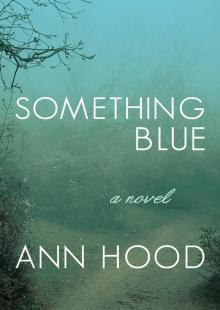 Something Blue
Something Blue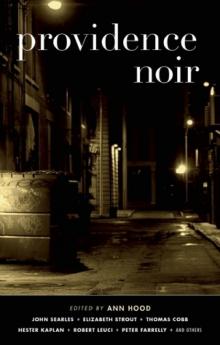 Providence Noir
Providence Noir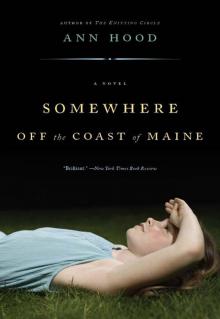 Somewhere Off the Coast of Maine
Somewhere Off the Coast of Maine Jewel of the East
Jewel of the East Queen Liliuokalani: Royal Prisoner
Queen Liliuokalani: Royal Prisoner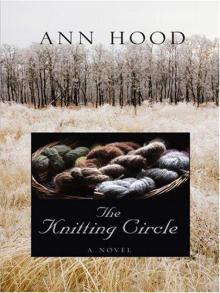 The Knitting Circle
The Knitting Circle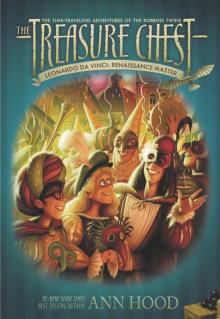 Leonardo da Vinci: Renaissance Master
Leonardo da Vinci: Renaissance Master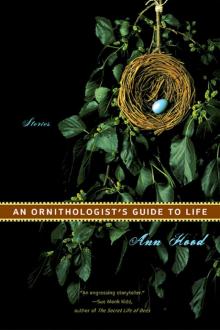 An Ornithologist's Guide to Life
An Ornithologist's Guide to Life The Red Thread
The Red Thread She Loves You (Yeah, Yeah, Yeah)
She Loves You (Yeah, Yeah, Yeah)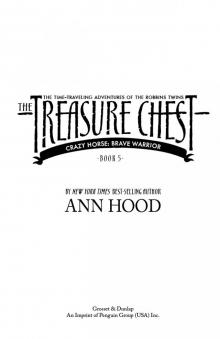 Brave Warrior
Brave Warrior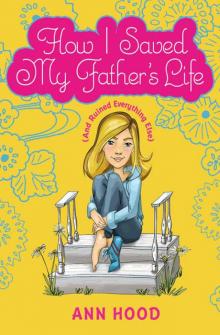 How I Saved My Father's Life (and Ruined Everything Else)
How I Saved My Father's Life (and Ruined Everything Else) An Italian Wife
An Italian Wife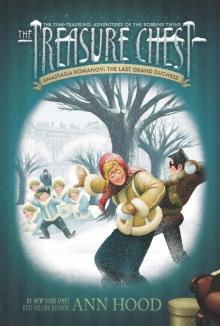 Anastasia Romanov: The Last Grand Duchess #10
Anastasia Romanov: The Last Grand Duchess #10 Prince of Air
Prince of Air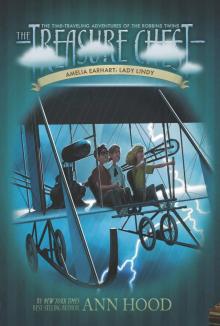 Amelia Earhart: Lady Lindy
Amelia Earhart: Lady Lindy Places to Stay the Night
Places to Stay the Night Little Lion
Little Lion Comfort
Comfort Angel of the Battlefield
Angel of the Battlefield